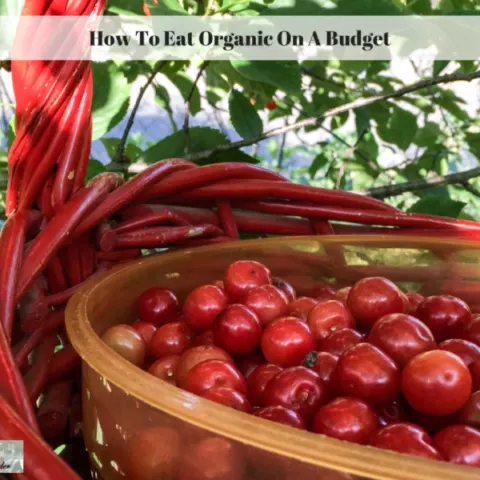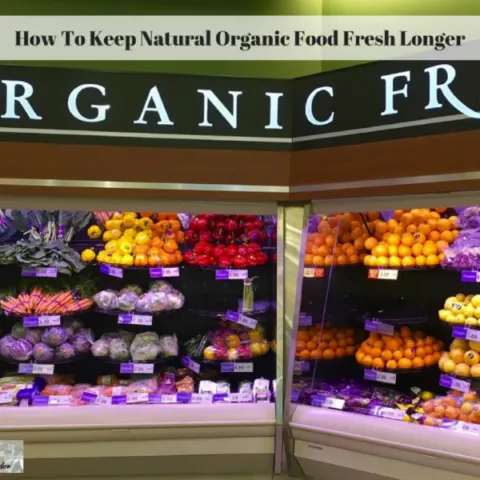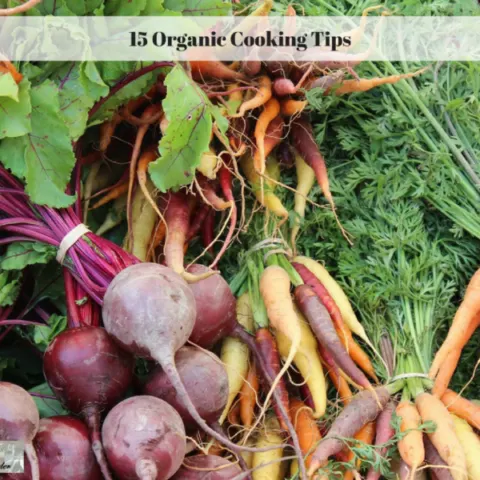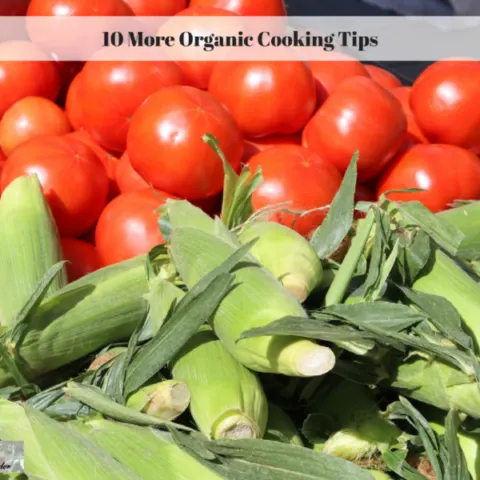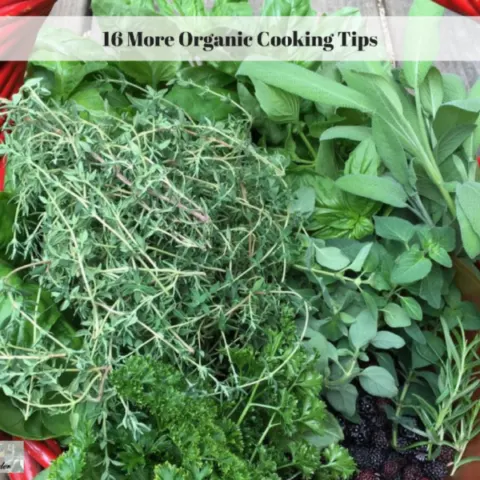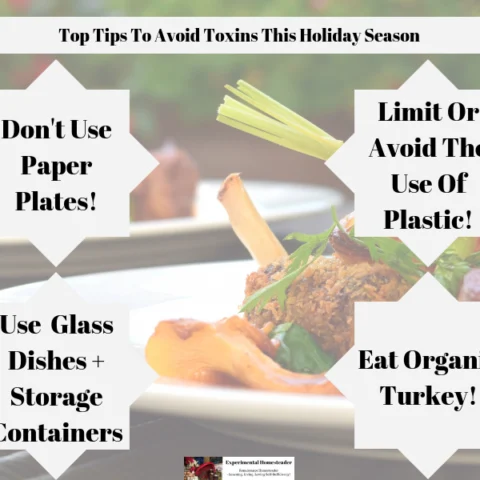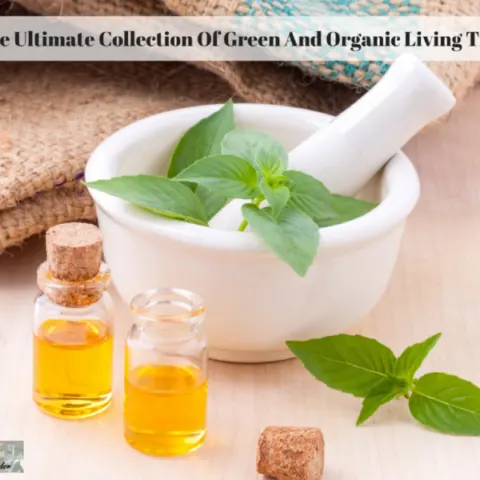These organic living tips help with a healthy lifestyle.
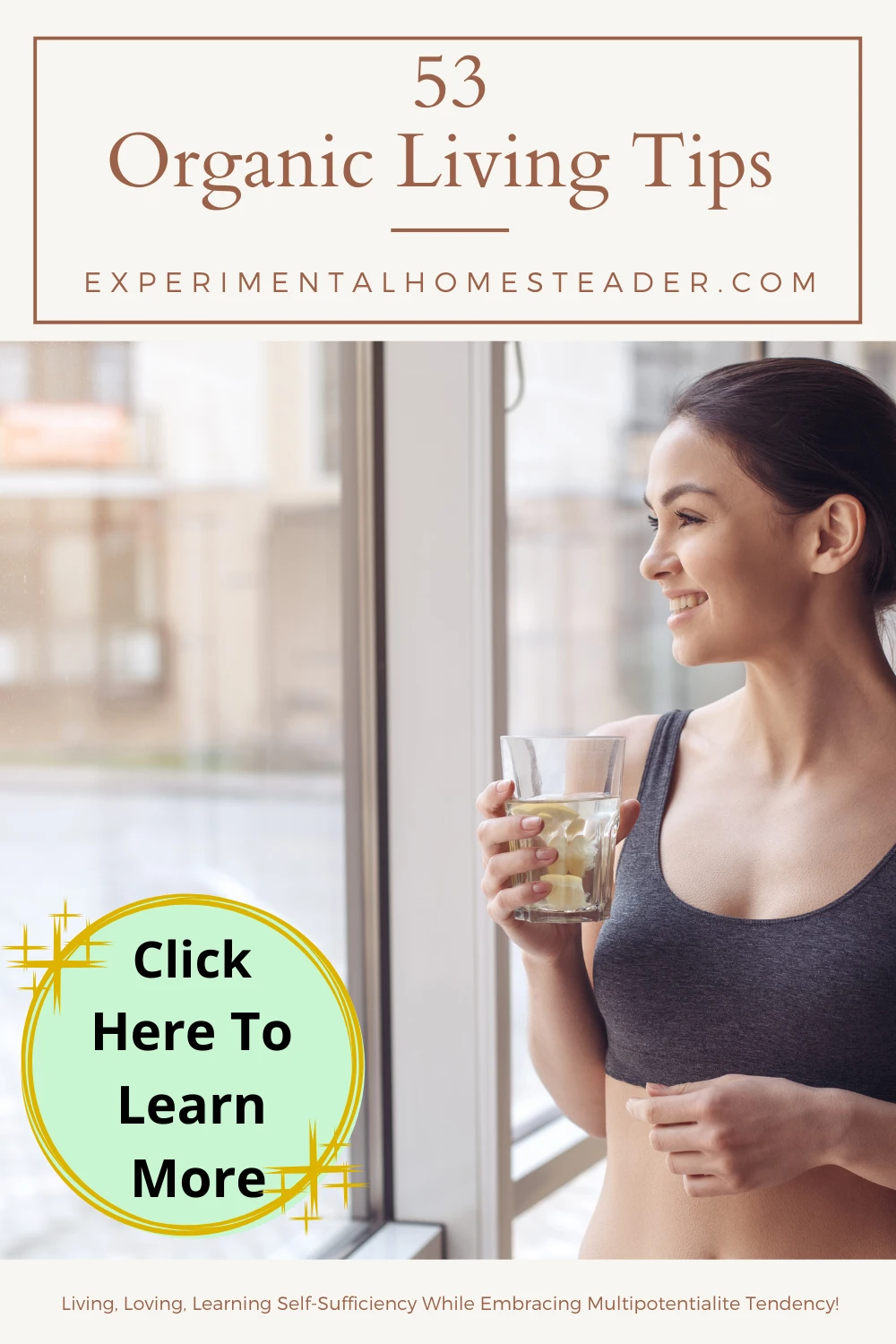
- Faucet water contains fluoride in all 50 states. Purchase a reverse osmosis filter to remove it. A Britta filter won’t be enough.
- Chlorine in water will evaporate after a few hours. Just leave it in a filter or jug in your fridge overnight.
- Though Nalgene bottles are BPA-free, they’ve been found to leech other chemicals. Use glass bottles to be 100% safe.
- Avoid anti-bacterial soap. Residue on dishes and hands gets in the stomach and kills your “good bacteria.”
- Cooking with coconut oil is better than olive oil. It has more Omega-3s and doesn’t oxidize in sunlight or high temperatures.
- Tom’s toothpaste is a great alternative to traditional toothpaste. It’s fluoride free and avoids many additive chemicals.
- Setting up a vertical garden takes a week or two, but can pay off in organic produce for years.
- Coconut or almond based ice cream is a fantastic way to indulge, without eating dairy.
- Most organic eggs come from cooped up chickens fed organic produce. For true free range eggs, find a local farmer on localharvest.org.
- “Organically made” is not the same as “Organic.” “Freely Traded” is not the same as “Free Trade.” Those former foods aren’t certified.
- Avoid cheap vegetable oils at all costs. They’re high in Omega-6 and very unhealthy.
- Most “grass fed” beef are still grain finished. For 100% grass fed beef, look for a local farm you can buy from.
- Most fruits have quite a high glycemic index. The exception are berries (including strawberries) which are low GI and very healthy.
- Think you can’t afford organic? Buy foods that are in season. It’s both more inexpensive and healthier.
- Have a favorite seasonal food? Buy it when it’s in season, then freeze it. It’s healthier than buying it out of season.
- Avoid large fish like tuna. Large fish eat small fish and build up higher concentrations of mercury.
- Avoid multi-vitamins. Instead, build your own vitamin stack. Most multi-vitamins skimp on the important nutrients.
- Consider supplementing Omega-3s. It’s perhaps the most important supplement of all for the health conscious.
- Look up and remember when your local farmer’s markets are. They’re cheaper, and you can ask directly about how the food was grown.
- Buy green cleaning products to avoid chemicals like ammonia or chlorine in your house.
- Not all food has to be labeled “Organic” to be healthy. If you’re buying directly from the farmer, ask how it was made.
- Sign up for your local fruit or veggie boxes. Farmers will deliver fresh organic produce straight to your door.
- See if there are food co-ops near you. These co-ops grow organic food and sell it to their local markets.
- Carrots, beets and radishes are very easy to grow. If you want to give growing a shot, that’s a good place to start.
- Try to eat as much of your produce raw as possible. Cooking destroys enzymes and can reduce vitamin content by 12x.
- Soak produce in ⅓rd vinegar and ⅔rds water to kill bacteria, if eating it raw.
- Check the OCA’s website to buy organic foods online - organicconsumers.org
- Trader Joe’s is a great, lower-cost alternative to Whole Foods. Do you shop there?
- Subscribe to health coupon sites for deals.
- Look for “specials” in supermarkets (including Whole Foods.) These mean the food’s in season and affordable.
- Organic beans are a great source of protein. Make sure you cook them thoroughly, as semi-cooked beans are toxic.
- Quinoa is a complete amino acid and provides your body with all the proteins you need. Yummy and easy to cook, too!
- Buy your organic chickens whole. It’s cheaper than buying by the part, and you can use the carcass to make broth.
- Most coffee shops (including Starbucks) sell Fair Trade but not organic coffee. Organic coffee is available online or in Whole Foods.
- Use the bulk isle. You can buy everything from beans to quinoa to nuts while saving money and saving packaging.
- You can order organic snack bars in bulk, affordably at Amazon.com. It’s as much as 50% cheaper than buying at the store.
- Never eat the skin of non-organic papayas or mangos. Some are dipped in toxic pesticides when they cross the border.
- When buying seeds, make sure you’re buying non-GMO. If it doesn’t say it’s non-GMO, don’t assume that it is.
- Make your jams at home. Most commercial jams (even organic) like peanut butter jam or strawberry jam are high in sugar.
- Agave nectar isn’t much healthier than traditional sugar. Organic honey is better, while organic coconut sugar is best.
- Store your olive oil in a dry place, outside of sunlight. Oxidized olive oil is very dangerous.
- Nut milks in supermarkets contain a lot of additive ingredients. For best results, make your own. It only takes 10 mins.
- Nuts can be healthy snacks, but they’re also very high in fat and calories. Enjoy them, but eat in moderation.
- Bananas are high GI and low in nutritional value. Plantains are low GI and much healthier. But they need to be cooked.
- Add a few Brazil nuts to your diet. It’s one of the few foods high in selenium, which is good for your hormones and your thyroid.
- Buy good salt. Good salt can add dozens of minerals to your diet. One jar of Himalayan sea salt can last a year.
- Avoid Teflon. If you must cook with Teflon, never ever place metal into the pan.
- Rice has very little nutritional value, but isn’t unhealthy either. Use sparingly.
- Don’t forget about eBay. You can find great deals for organic foods at steep discounts!
- Stay to the end of Farmer’s Markets. They’ll often give out last minute deals to clear out inventory.
- Put paper towels on the edges of your fridge’s veggie drawer. It’ll draw the moisture and preserve your greens.
- Spinach wilted? As long as it doesn’t don’t smell, you can still cook it and it will be just as good.
- Check Meetup.com for organic potlucks and meetups. They can be a fun way to add variety to your diet!

Organic Living Tips - Food
How To Eat Organic On A Budget
Learn how to eat organic on a budget, even if you have a large family. Buying in bulk, coupons and looking for sales works but check out these tips.
How To Keep Natural Organic Food Fresher Longer
Natural organic food is healthier for you however figuring out how to keep produce fresh when life happens is tricky. Check out these 5 food storage tips.
15 Organic Cooking Tips
These 15 organic cooking tips show you how to live the organic lifestyle. It is possible to find ways to start buying organic food on a budget.
10 More Organic Cooking Tips
These 10 organic cooking tips will help you save money and eat better. Learn how affordable organic food is and start living the organic lifestyle today.
16 More Organic Cooking Tips
Check out these 16 organic cooking tips and learn about buying organic food on a budget. It is possible to find affordable organic food.
Top Tips To Avoid Toxins This Holiday Season
Learn how to avoid toxins this holiday season with these tips from Stewart Lonky, MD. Every tip is easy to follow and something you can do!
The Ultimate Collection Of Green And Organic Living Tips
Check out these organic lifestyle articles for organic living tips you can start using in your life today. There is no better time than now to go organic!


